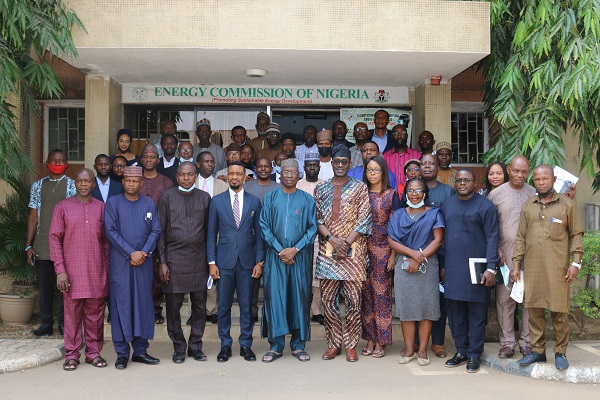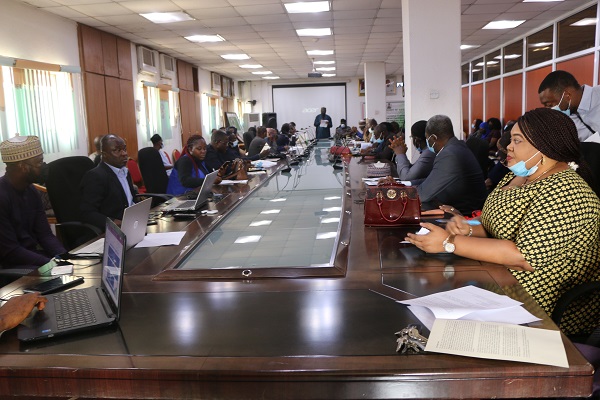
Energy is unarguably the main driver of any nation’s economic development. It drives the sectoral development of almost all sectors of the economy; agriculture, health, commerce, education, environment, banking and finance, oil and gas, science and technology, information and communication technology etc.
However, most developing countries are faced with the herculean challenge of efficiently managing their energy sector to drive the required growth. Nigeria, with her boggling population of over 200 million is currently grappling with ways to fix her energy challenge, especially in the industries for rapid industrialisation.
In its efforts, the Federal Government through the Energy Commission of Nigeria (ECN) recently assembled stakeholders to brainstorm on industrial energy, policies and regulations under the project “Improving Nigeria’s Industrial Energy Performance Through Programmatic Approaches and the Promotion of Innovation in Clean Technology Solutions (NIG IEE/RECP Project)”.
Declaring the workshop open in Abuja, the director-general, ECN, Prof. Eli Bala, said the four-year project being implemented by the commission with support by the Global Environment Facility (GEF) and the United Nations Industrial Development Organisation (UNIDO), as well as other national stakeholders, aims at accelerating the adaption of industrial energy efficiency (IEE) and improving enterprise environmental performance through resource efficiency and cleaner production (RECP) best practices in Nigeria.
He reiterated the two main focus areas of the project as IEE and RECP, saying it targets various sectors of the economy.
Bala pointed out that the ECN is charged with the responsibility for the strategic planning and coordination of the nation’s policies in the field of energy in all its ramifications.
“Consequently, under this project, the commission is expected to primarily coordinate the conduct of a comprehensive assessment and analysis of the policies of all sectors of the economy concerning energy, its efficiency, regulations and standards. Certainly, conducting such an assessment requires the full involvement of all stakeholders.
“Hence, you are invited here today to this ‘kick-off’ workshop to enable all stakeholders to brainstorm on how industrial energy efficiency best practices can be mainstreamed into the nation’s industrial development policies and plans for sustainable development. In a situation of limited energy supply and global concerns on climate change, efficient energy use makes perfect business and environment case by reducing production costs, increasing profits and competitiveness as well as a reduction in [the emission of] greenhouse and other obnoxious gases,” he added.

In his remarks, the country representative and regional director, UNIDO regional office hub, Mr. Jean Bakole, pointed out that Nigeria needs to improve her energy efficiency, especially for the industries.
Listing some of the factors necessitating Nigeria’s energy sector challenges, he ticked off the erratic power supply, industries’ contribution to environmental pollution, low industrial power factor, rising cost of electricity tariff, grossly low power generation and distribution etc.
He posited that without energy, the nation’s industries will function below par but efficient use of the available energy not only makes available more energy for use but also minimises and prevents environmental pollution.
Represented by UNIDO’s environment expert, Oluyomi Banjo, Bakole said the project has an objective to achieve energy efficiency and optimisation in the nation’s industries, especially in food and beverages, metals and steel, textile garments and leather, petrochemicals and wood and furniture sectors.
Giving an overview of the project, the director for linkages and consultancy, Engr. Okon Ekpenyong agreed that [having] an appropriate policy and legislative framework remained the bedrock for the promotion of national energy efficiency and conservation best practices in all sectors of the nation’s economy.
He noted that, despite the overarching energy efficiency policies, there is little or no concrete specific policies formulated by individual organisations and companies to mainstream energy efficiency best practices into the day-to-day operation of their organisations. Ekpenyong said a cascading of the policy framework to an official document by top management to demonstrate its commitment and support to an energy management system for achieving continual energy savings and cost reductions is not common in Nigeria.
“This workshop, therefore, is to enable stakeholders to look at its respective energy-related policy documents and assess whether energy efficiency and conservation best practices were considered or not in the formulation of the policies and regulations,” he added.
Speaking exclusively to Science Nigeria, the director-general, Manufacturers Association of Nigeria (MAN), Segun Ajayi-Kadir, asserted that what the project means to Nigeria as a nation is to help her maximise the input from scarce energy.
“You know for us in the manufacturing sector, for instance – which is a very critical sector in Nigeria – energy is like blood is to the body. When you can efficiently utilize energy that is not available in the required quantity and quality, it means that once we have succeeded in this it will lead to improved productivity, the manufacturing sector will blossom, we will employ more people, pay more taxes to the government and positively impact the lives of average Nigerians.
“So, for us, this project that is so excellently managed by the ECN speaks volumes to how the people can have their daily life impacted by a policy that is well crafted and addressing one of the major issues of our national life,” he added.


